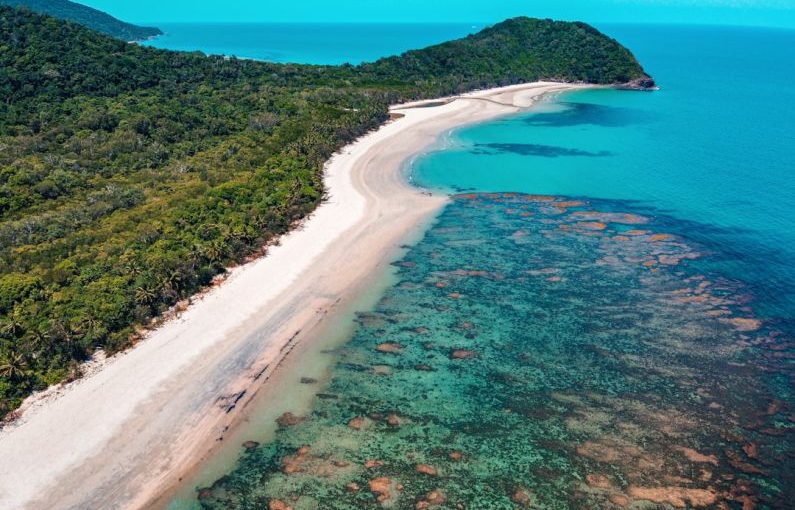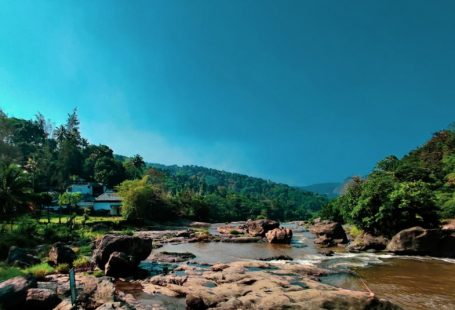The Great Barrier Reef, located off the coast of Queensland, Australia, is a mesmerizing underwater world that beckons adventurers and nature enthusiasts from around the globe. Stretching over 2,300 kilometers, it is the largest coral reef system on the planet and a UNESCO World Heritage site. Exploring the Great Barrier Reef is like stepping into a vibrant, diverse ecosystem teeming with life and color. From colorful corals to majestic marine creatures, the reef offers a unique opportunity to witness the beauty and wonder of the underwater world.
**Diving into the Depths**
One of the best ways to experience the Great Barrier Reef up close is through scuba diving. Descending into the crystal-clear waters, you are immediately surrounded by a kaleidoscope of colors as vibrant coral formations come into view. The reef is home to over 1,500 species of fish, including the iconic clownfish, as well as sea turtles, reef sharks, and rays. Diving among these creatures is a truly immersive experience, providing a glimpse into their natural habitat and behavior.
**Snorkeling Adventures**
For those who prefer to stay closer to the surface, snorkeling is a popular way to explore the Great Barrier Reef. With just a mask, snorkel, and fins, you can glide effortlessly over the shallow reef, marveling at the intricate coral structures below. Snorkeling offers a more relaxed and accessible way to observe the reef’s inhabitants, from tiny seahorses to graceful manta rays. It is an ideal activity for beginners and experienced swimmers alike, providing a taste of the reef’s beauty without the need for specialized training.
**Marine Conservation**
The Great Barrier Reef is not only a tourist destination but also a vital ecosystem that supports a myriad of marine life. However, it faces numerous threats, including climate change, pollution, and overfishing. Conservation efforts are crucial to preserving the reef for future generations to enjoy. Many tour operators and organizations on the reef actively promote sustainable practices, such as reef-friendly sunscreen and responsible diving and snorkeling guidelines. By raising awareness about the importance of marine conservation, visitors can play a role in protecting this natural wonder.
**Exploring Remote Islands**
In addition to the underwater wonders of the Great Barrier Reef, the surrounding islands offer their own unique attractions. Lizard Island, for example, is a secluded paradise with pristine beaches and lush vegetation, perfect for a day of relaxation or exploration. Orpheus Island is another idyllic spot known for its luxury resorts and world-class diving sites. Venturing beyond the reef itself allows visitors to discover the diverse landscapes and wildlife of the region, from tropical rainforests to secluded coves.
**Unforgettable Experiences**
Whether you are a seasoned diver or a first-time snorkeler, exploring the Great Barrier Reef is an unforgettable experience that will stay with you long after you return to dry land. The sheer diversity of marine life, the vibrant colors of the coral formations, and the sense of wonder at being part of such a dynamic ecosystem are just a few of the highlights awaiting visitors. By immersing yourself in this underwater world, you gain a deeper appreciation for the beauty and fragility of our planet’s oceans.
**Preserving a Natural Treasure**
As we continue to discover the wonders of the Great Barrier Reef, it is essential to remember the importance of preserving this natural treasure for future generations. By supporting sustainable tourism practices, learning about marine conservation, and spreading awareness about the reef’s value, we can help ensure that it remains a thriving ecosystem for years to come. Let your journey to the Great Barrier Reef be not only a personal adventure but also a commitment to safeguarding one of the world’s most extraordinary natural wonders.





